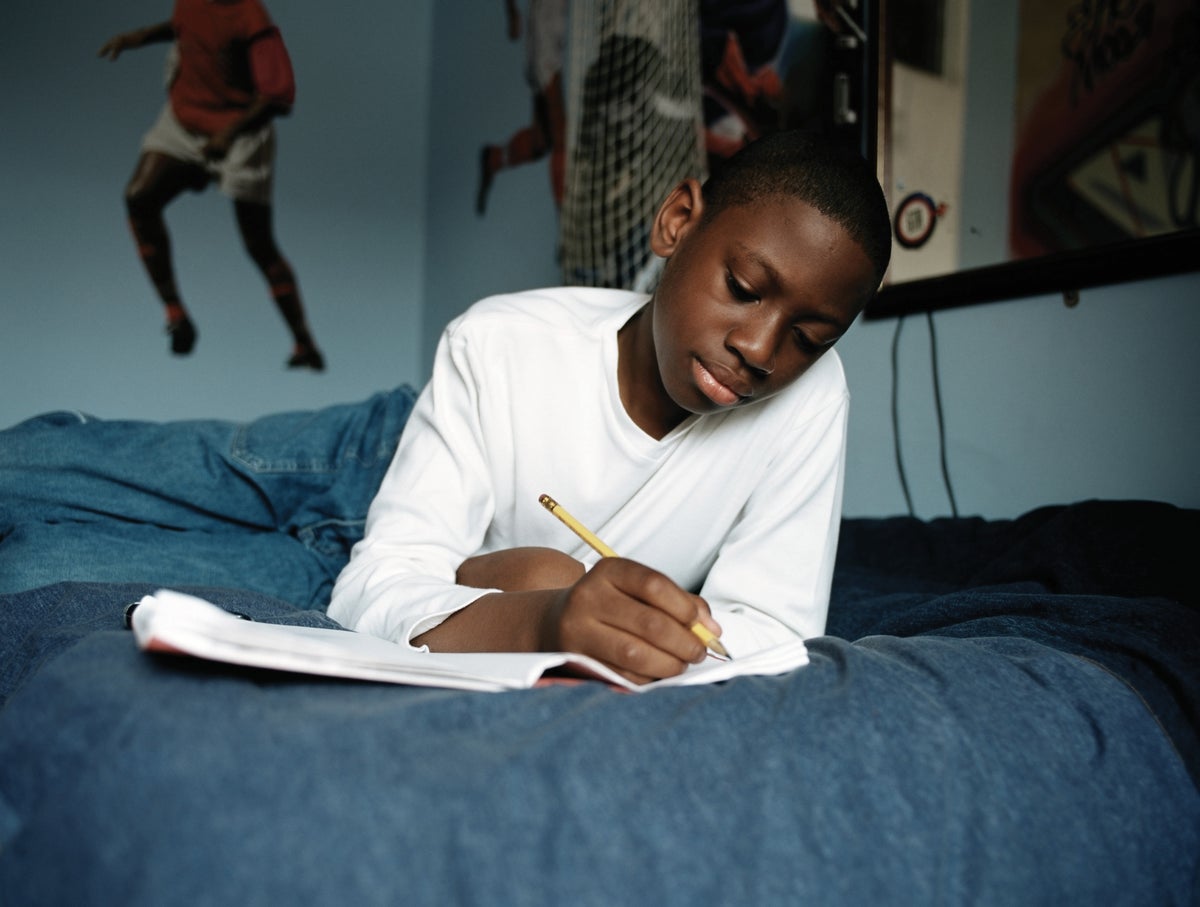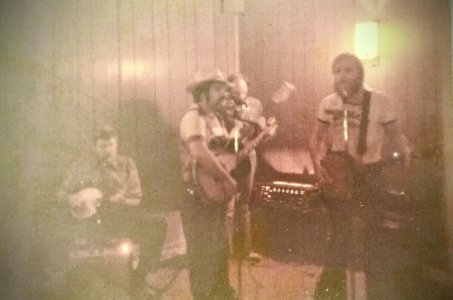I think you were quite right to give up on the memorising. My sight reading is abysmal, I’d definitely trade being able to memorise things fast for the ability to play anything that was put in front of me with ease.Even from a young age, memorizing music just never came naturally to me, no matter what instrument I was playing. So, by default, I became an excellent sight reader. For awhile, I continued to feel that I should just work harder at memorizing songs, but eventually I gave up trying because I realized that - for me - the real joy in playing an instrument comes from being able to play my way through a vast array of music. At this point in my life, I have collected a great many books and binders of music for various instruments. More than enough to hold my interest, and keep my brain happy … until I eventually move on to my final resting place at that marvelous, magical music store in the great beyond.
You are using an out of date browser. It may not display this or other websites correctly.
You should upgrade or use an alternative browser.
You should upgrade or use an alternative browser.
How many pieces of music / songs can you keep in your head, and how do you make sure they stay there?
- Thread starter TBB
- Start date
OiNumiDellArpa
Member
...I get a great deal of pleasure from learning to play music on my little soprano ukulele which was written by people with infinitely more compositional skill than I have and intended for much grander instruments. It’s my bag.
and the idea that you can have any piece of music (across centuries and musical styles) in your little instrument:
often what attracts us in a piece (a sudden change of mode, a "weird progression",a syncopation, a melodic line, etc.) does not require great resources and can be reproduced with the four strings
(and for songs I haven't played in a while, I take a look at some quick tabs I jotted down when I found the song, just to bring them back to mind)
Last edited:
ukukeguy
Well-known member
I have never been able to sight read music of any complexity, unlike my wife, who stopped playing piano not long after we married, yet seems to have retained the ability, but the old 'music dyscalculia' overwhelms me when I am confronted by a sheet of manuscript paper, whereas I can remember melodies, chords and some lyrics enough to 'fake' it most of the time, although I seem to be increasingly dependent on lyric sheets. Tunes? Anything from the 1920s and onwards, although I don't think I will be memorising anything well enough to perform on the classical uke page on here so sadly it will have to remain a dream!
hands_on_lanzon
Well-known member
I started to type up a reply to the same question, but realized I didn't finalize and post it til just now. This summarizes my same feelings pretty well, really. The songs I have memorized are ones that I truly enjoy playing. They can bring me peace and calm anywhere and anytime I have a uke in hand, with no sheets or phone or screen needed. Just me and a uke on a beach, or hanging on a hammock, or walking around the woods. I'm smiling just thinking about it!I didn't grow up learning anything in particular-- certainly very few of my music lessons took at all, which is why the last time I'd touched a musical instrument was during the Carter administration before I took up the ukulele in 2020.
But I've been singing along with records, the radio and such for over 60 years. THAT, I can do. I've never intentionally tried to memorize any of them that I can remember, but I've still managed to memorize hundreds of songs by accident, at least well enough to pass an oral exam if not a written one, so to speak.
Look, there's a pile of garbage in my head that got stuck in there by accident. I'd remove a third of it if I could, but you can't really forget something on purpose, can you?If something's gonna be there, it might as well be things that I WANT to be there. THOSE, I can do something about.
My own experience observing dementia in way too many family members is that it's not entirely about forgetting things. It's about losing control of what you remember. You could even describe some aspects of dementia as non-stop novelty for the sufferer, and non-stop suffering for their loved ones. I gotta tell ya, when your dad asks, "Hey, you're new here! What's your name?" the answer is NOT, "I'm your son, and I was just here 10 minutes ago. I just stepped out to talk to the doctor." He's certain he's never seen you before, and it just upsets him to have forgotten that he'd ever had any kids at all, much less you in particular.
There's no question that an ever-widening range of new experiences is an important part of exercising the mind, but the flipside of neuroplasticity is that if you don't have the ability to solidify some of the novelty into persistence, AT WILL, then you really don't have much at all. Experiencing new things. Remembering them. Calling them up at will. A healthy mind exhibits them all.
To put it another way, what turns "experiences" into Experience, is memory. If you're not remembering things, are you actually learning them at all?
I'm going to assume that you're making a rhetorical point about being at one end of a practical spectrum of memorizing everything you play or memorizing nothing, but I'll conversationally push back with the observation that you've likely forgotten more about scales and modes than many of us can recall....except that you don't seem like a guy who's forgotten much of what you've ever heard or read.Maybe it comes easily to you.
Back to my earlier point, I can remember garbage stuff with no effort whatsoever. The less important it is, the more easily I'll remember it forever and ever, whether I want to or not. LOL
Aside from the role and nature of memory in forging experience, there is also for me the notion of living with intent. I've wasted an awful lot of my life bouncing from one thing to the next, driven by whatever vague impulse I'm feeling, or driven by circumstances where I lacked the wherewithall to shape my circumstances myself. I find that I like being at least a little in the driver's seat.
With music, here's the key. When I'm reading sheets, the music is outside me, and I'm straining to pull it in. It's true, but it's not how I FEEL. I feel like the music is in me, and it's trying to get out, and the only way to reconcile the two is to actually learn the song well enough for it to actually BE inside me.
From there, I'm riding downhill. The hard part is done. Now I just need to keep building the skills to make it actually sound good.Which is easier when the energy is moving in the right direction -- from INSIDE ME, out.
Here's the other thing. Everyone has a different road. Maybe going through the Beloff books, a page a day, one after the other, is exactly what you want. God bless the Beloffs and those books, but that's not my road. And yeah, I don't need to memorize every single song I'll ever play. Sometimes playing a fun song once in my life is enough.
But for some songs, playing then a THOUSAND times, TEN thousand times, won't be enough. Nothing could ever possibly be enough, so rather than only have them in me for the length of time I'm playing them, I'll invite a handful of 'em to LIVE in me.
I'll visualize playing them when I don't have an ukulele in my hands. I'll keep thinking about adding more riffs and chord extensions and inversions to make it sound even better. This handful of songs will be my life's work. The rest of them will just be fun, and that's okay too.
Fun's fun, and we all need fun, but sometimes I need to play for keeps, and the songs I want to play for keeps, I'll be memorizing.
More of an answer than anyone was likely looking for, but if you're gonna ask, even rhetorically, why anyone wants to keep a song in their heads, there's the short version of my answer.
I enjoy the different perspectives, minds, processes, and approaches shared in this thread! It's awesome that we're all so different and are able to appreciate what we like and let others appreciate what they like as well. I ever learned a little Latin!..
Suum cuique
ukukeguy
Well-known member
I read this the other day, but there is a lot of evidence that writing something down is still the best way of committing it to memory.

 www.scientificamerican.com
www.scientificamerican.com

Why Writing by Hand Is Better for Memory and Learning
Engaging the fine motor system to produce letters by hand has positive effects on learning and memory
hands_on_lanzon
Well-known member
I had a violin teacher when I was in middle school who once told me "the dullest pencil is sharper than the sharpest mind" as he was writing a note on my sheet music. Even then, I had a tendency to memorize pieces and play by muscle memory more than read each piece, note by note. I'm sure he was tryna tell me something... i just wish i could remember what that was.I read this the other day, but there is a lot of evidence that writing something down is still the best way of committing it to memory.

Why Writing by Hand Is Better for Memory and Learning
Engaging the fine motor system to produce letters by hand has positive effects on learning and memorywww.scientificamerican.com
Last edited:
chris667
Well-known member
I'll send you some chords if you like!I love the song you linked to, if it was me I’d definitely want to keep playing it just for the sake of it, so that I didn’t lose it.
For me (a simple strummer/singer) it all depends upon how often I play any particular piece. At one time, when I was playing a lot, I had a memorised 'repertoire' of more than three dozen songs, in quite a wide variety of different keys.
If I haven't played a song for a few weeks my memory of it will become unreliable. Nowadays, I play quite infrequently and consequently there are only about a dozen (probably fewer) that I could be confident of playing from memory.
Some years ago, I visited an old man who had an ancient keyboard instrument in his lounge. It was some kind of organ - American, I think. I commented on it and he responded very sadly. He told me that music used to be his greatest love but his eyesight had diminished to the point that he could no longer read. He was unable to play anything at all without reading from the sheet music.
****************************************
I wonder if sheet music is available in Braille? (Sorry, that was a very bad joke!)
If I haven't played a song for a few weeks my memory of it will become unreliable. Nowadays, I play quite infrequently and consequently there are only about a dozen (probably fewer) that I could be confident of playing from memory.
Some years ago, I visited an old man who had an ancient keyboard instrument in his lounge. It was some kind of organ - American, I think. I commented on it and he responded very sadly. He told me that music used to be his greatest love but his eyesight had diminished to the point that he could no longer read. He was unable to play anything at all without reading from the sheet music.
****************************************
I wonder if sheet music is available in Braille? (Sorry, that was a very bad joke!)
rustydusty
Well-known member
I haven’t been a singer since the ‘70s and mostly play harmonica and uke, guitar, or tenor banjo together. In the early bands we played everything by ear, feeling that it was “unprofessional” to use a cheat sheet. These days, most of our band uses iPads on a rack on their mic stands (I still play by ear…). This picture is of the “Back Porch Pickers” at a bar gig, back in the early seventies. Notice that there is no music stands. So, memorization seemed important back then, not so much nowadays…



I play fingers style with the melody in each song. I have close to 60 songs memorized. At 70 years of age it is tough to remember them all. I play out twice a week which helps me stay on top of things but my main method of practice is one hour every day going through at least half of my play list. It gets tougher when I try to learn song or two that I like. And the older I get the memory fades. But in the words of Alicia keys, “if you don’t practice an hour a day, you’re gonna suck”. Good luck practicing 
ghostrdr
Well-known member
3-4. i play fingerstyle. if I learn a new piece, I stop practicing the others. Sigh.
Yes please! I rarely learn songs but I’d really like to give that one a go.I'll send you some chords if you like!
That’s incredibly sad. I suppose that’s one benefit of depending on memory, it’s easier to continue playing even with declining sight.He told me that music used to be his greatest love but his eyesight had diminished to the point that he could no longer read. He was unable to play anything at all without reading from the sheet music.
Haha, lucky old Alicia Keys! I’d love to be able to practise for an hour a day but pesky everyday life keeps getting in the way - I’m doomed to suck!in the words of Alicia keys, “if you don’t practice an hour a day, you’re gonna suck”
hands_on_lanzon
Well-known member
FYI, folks.. he's the one! Sounds like more than 2hrs of music to me!!I play fingers style with the melody in each song. I have close to 60 songs memorized. At 70 years of age it is tough to remember them all. I play out twice a week which helps me stay on top of things but my main method of practice is one hour every day going through at least half of my play list. It gets tougher when I try to learn song or two that I like. And the older I get the memory fades. But in the words of Alicia keys, “if you don’t practice an hour a day, you’re gonna suck”. Good luck practicing
Joyful Uke
Well-known member
- Joined
- Jul 17, 2014
- Messages
- 3,545
- Reaction score
- 2,696
I wonder if there might be some sort of app (or other device?) these days that could help? If not, someone with the appropriate skills should come up with one. I would think that there are a lot of people in a similar situation.Some years ago, I visited an old man who had an ancient keyboard instrument in his lounge. It was some kind of organ - American, I think. I commented on it and he responded very sadly. He told me that music used to be his greatest love but his eyesight had diminished to the point that he could no longer read. He was unable to play anything at all without reading from the sheet music.
If Beethoven could compose great music while deaf, surely there is a way to help the sight impaired be able to continue to play music, even if they can't play by ear or memory.
Similar threads
- Replies
- 47
- Views
- 1K
